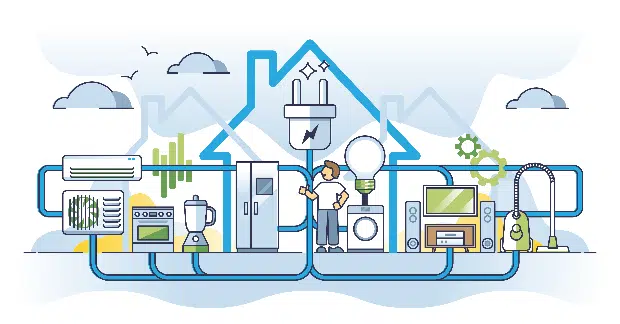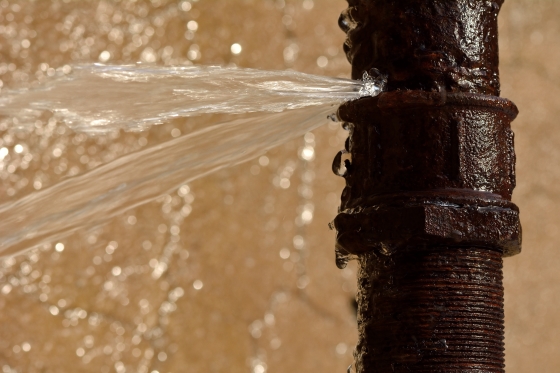Innovative Ways to Reduce Your Household Energy Consumption
Practical Strategies for Maximizing Household Energy Efficiency

Key Takeaways
- Learn practical tips to reduce household energy consumption.
- Understand how small changes can yield significant energy savings.
- Explore the benefits of energy-efficient appliances and smart home technology.
- Find out how regular maintenance can prevent energy wastage.
Introduction to Energy Savings
With rising energy costs and increasing environmental concerns, finding ways to reduce household energy consumption is more important than ever. Not only can you save money on your utility bills, but you’ll also be doing your part to reduce your carbon footprint.
From investing in energy-efficient appliances to choosing the right Midland electricity providers, there are numerous ways to reduce energy use in your home. In this article, we will delve into several innovative methods to achieve substantial energy savings, each of which is both practical and effective.
Invest in Energy-Efficient Appliances
Although energy-efficient appliances are more expensive initially, they can substantially decrease energy consumption over time. Contemporary Energy Star-certified appliances are designed to use minimal electricity without compromising performance quality. For example, energy-efficient refrigerators, washing machines, and dishwashers use advanced technology to minimize energy consumption during operation.
Additionally, these appliances often come with features that allow for even more energy savings, such as eco-mode settings that use less water and energy. The long-term financial benefits are substantial.
Households that switch to energy-efficient appliances can save hundreds of dollars yearly on their energy bills. Over the appliance’s lifespan, these savings can offset the initial cost.
Furthermore, many local and federal rebate programs can help reduce the purchase price of these energy-efficient options. It’s not just about saving money, though. Using energy-efficient appliances decreases the overall electricity demand, contributing significantly to environmental conservation.
Adopt Smart Home Technology
Smart home technology isn’t just about convenience; it can also help you manage energy consumption more effectively. Products like smart thermostats adjust the temperature based on your schedule and preferences and can significantly cut your heating and cooling costs.
For instance, a smart thermostat can learn your routine and automatically lower the heat or air conditioning when you’re not home, resulting in substantial savings. These devices can also be controlled remotely via smartphone apps, allowing you to make real-time adjustments from anywhere.
Other smart devices, such as programmable light bulbs and smart power strips, further help reduce energy waste. Smart power strips can sense when a device is in standby mode and cut off the power supply, preventing phantom loads that can add up over time. Integrating these technologies into your home can streamline energy efficiency while maintaining convenience.
Additionally, employing a smart home ecosystem allows for seamless integration and automation of various devices, providing energy savings and increased household comfort.
Perform Regular Home Maintenance
Consistent upkeep is essential to maintaining your home’s energy efficiency. Basic tasks such as cleaning air filters in your HVAC system can enhance airflow and decrease the energy required for heating or cooling your home.
Furthermore, closing any openings around windows and doors can stop drafts, maintaining a pleasant temperature in your house without putting too much strain on your HVAC systems. View home maintenance as a routine task by setting reminders or scheduling inspections to ensure your appliances and systems function well.
Another essential maintenance task is checking the insulation in your attic and walls. Proper insulation helps maintain the desired indoor temperature, reducing the need for excess heating in winter and cooling in summer. By ensuring that your home is well-maintained, you can prevent energy leaks and optimize the efficiency of your appliances. Maintenance tasks can impact your home’s energy usage in the long term.
Optimize Your Water Heating
Water heating is considered one of the significant energy costs for households, making up approximately 18% of their overall energy consumption, per the US Environmental Protection Agency.
Reducing the temperature setting of your water heater to 120°F can result in significant energy savings while still ensuring comfort. This simple adjustment can prevent overheating and reduce energy consumption. Additionally, installing low-flow fixtures can help reduce the amount of hot water used, leading to further energy savings.
Consider investing in an energy-efficient water heater or even a solar water heater. Traditional water heaters can be replaced with tankless models that only heat water as needed, reducing energy use.
Although more expensive initially, solar water heaters harness renewable energy and can lead to considerable long-term savings on energy bills. Combining an efficient water heating system with regular maintenance will optimize energy use and prolong the system’s lifespan.
Improve Home Insulation
Adequate insulation is essential for regulating indoor temperature levels and decreasing reliance on excessive heating and cooling. By improving the insulation in your home, you can save a notable amount of energy.
The US Department of Energy states that a well-insulated home can reduce heating and cooling expenses by up to 20%. Effective insulation creates an even indoor climate, lessening the workload on heating and cooling units.
Focus on insulating areas often overlooked, such as the attic, basement, and crawl spaces. Energy-efficient insulation materials with higher R-values should also be considered, as they provide better thermal resistance.
Comprehensive insulation improvements can create a more energy-efficient and comfortable living environment. Consider professional-grade insulating materials like spray foam, which offers excellent thermal resistance and effectively seal air leaks.
Implement Behavioral Changes
Occasionally, minor alterations in daily habits can significantly affect energy usage. Basic tasks such as switching off lights upon exiting a room, disconnecting unused devices, and drying clothes naturally instead of using a dryer can help save energy.
Changing to LED bulbs, which consume 75% less energy than incandescent bulbs, is a minor adjustment with significant advantages. Educating all household members about effective energy-saving habits is essential. Create visual reminders or routines that reinforce these habits until they become second nature.
Additionally, making a conscious effort to use appliances and electronics mindfully can further reduce energy use. For example, only running the dishwasher when it’s full and using the microwave instead of the oven for small meals are easy changes that can add substantial savings over time.
Install timers and smart plugs to schedule device usage and eliminate unnecessary energy consumption. Establishing an energy-efficient mindset within the household can lead to long-term benefits.
Utilize Renewable Energy Sources
Another effective way to reduce energy consumption is by harnessing renewable energy sources. Solar panels, for example, can provide a substantial portion of your home’s energy needs.
Although the installation can be pricey, many regions offer incentives and rebates to offset the initial costs, making it a worthwhile investment in the long term. Conduct a cost-benefit analysis with a professional to understand the financial advantages and long-term savings of using renewable energy in your home.
Sources of renewable energy like solar, wind, or geothermal can decrease your reliance on conventional electricity grids and reduce energy expenses. Supporting renewable energy solutions helps protect the environment and can result in substantial utility cost reductions in the long run.
Community programs or partnerships with local utility companies can offer additional financial support and resources for renewable energy projects, making them more accessible.
If you manage the household finances, looking at the overall cash flow can be stressful. Learn tips for making saving money a family affair.





